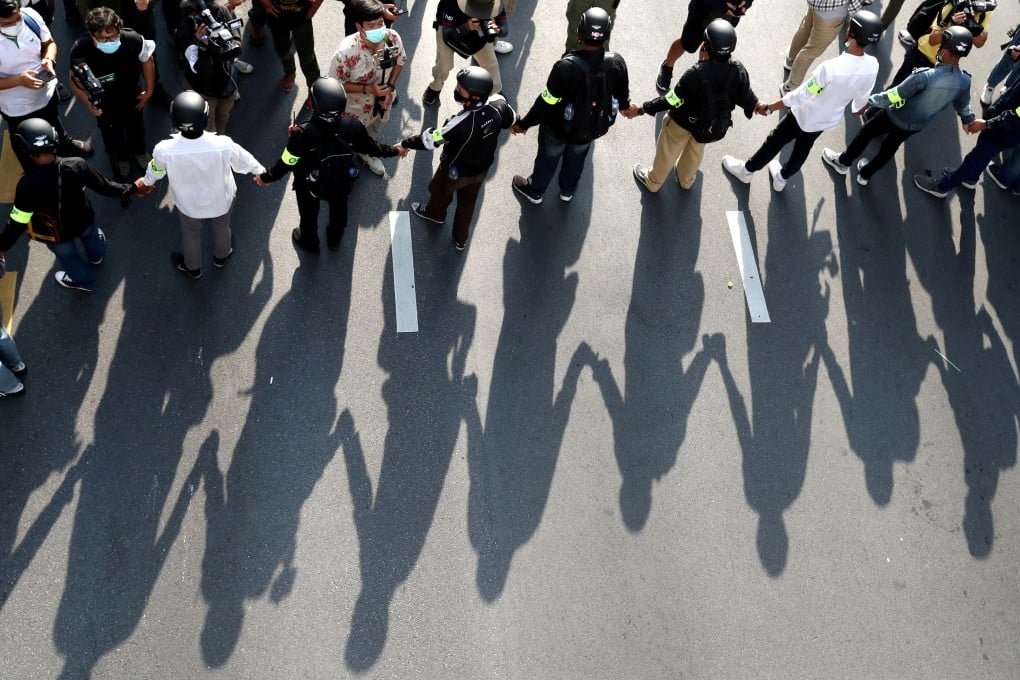In Thailand, pro-democrats take aim at ‘Big House’ political dynasties in local elections
- Upstart Progressive Movement to run in nearly half of elections, hoping to unseat establishment politicians and parties
- But it faces off against one of the country’s notorious political clans in Chonburi, where the Khunpleum family has ruled for years

Framed by a giant poster of himself, Wittaya Khunpleum, who belongs to one of Thailand’s most successful – and notorious – family political clans, takes the microphone and leads the crowd of mainly middle-aged supporters in chants of “We love Chonburi!”
But by playing money politics, these dynasties also impede the country’s democratic growth, according to critics, who see Sunday’s elections of Provincial Administrative Organisations (PAOs) – the first since the 2014 coup – as a chance to test whether a vibrant young reform movement on the streets translates into votes for greater democracy throughout the country.
The recently founded Progressive Movement, led by the champion of Thailand’s “Gen Z” pro-democracy front, Thanathorn Jungroongruangkit, is competing in 32 of the 76 PAOs, hoping its “new politics” message will bring out young voters against old power players.
In Chonburi, politics is the family business of the Khunpleum clan. For decades they have run the eastern seaboard, an area with billions of dollars worth of investments in ports, airports and rail links in the pipeline and home to the tourist gold mine of Pattaya.
The patriarch of the clan, Somchai, dubbed the ‘“Godfather of Chonburi” until his death in 2019, was a bootlegger turned businessman and an agile political operator who established the family banner as a vote bank for governments of all colours. He was jailed over the assassination of a powerful political rival in 2004.

02:37
Thai demonstrators gather near UN office calling for action against royal insult law
Somchai’s third-youngest son, Ittipol, is currently the minister of culture, a position given after the Khunpleums allied with the army-backed government of Prayuth Chan-ocha in the 2019 national elections. The elderly Somchai was granted early release from jail shortly before the alliance was announced so he could be treated for cancer. Two other sons are city mayors, one in Pattaya and the other in neighbouring Saensuk.